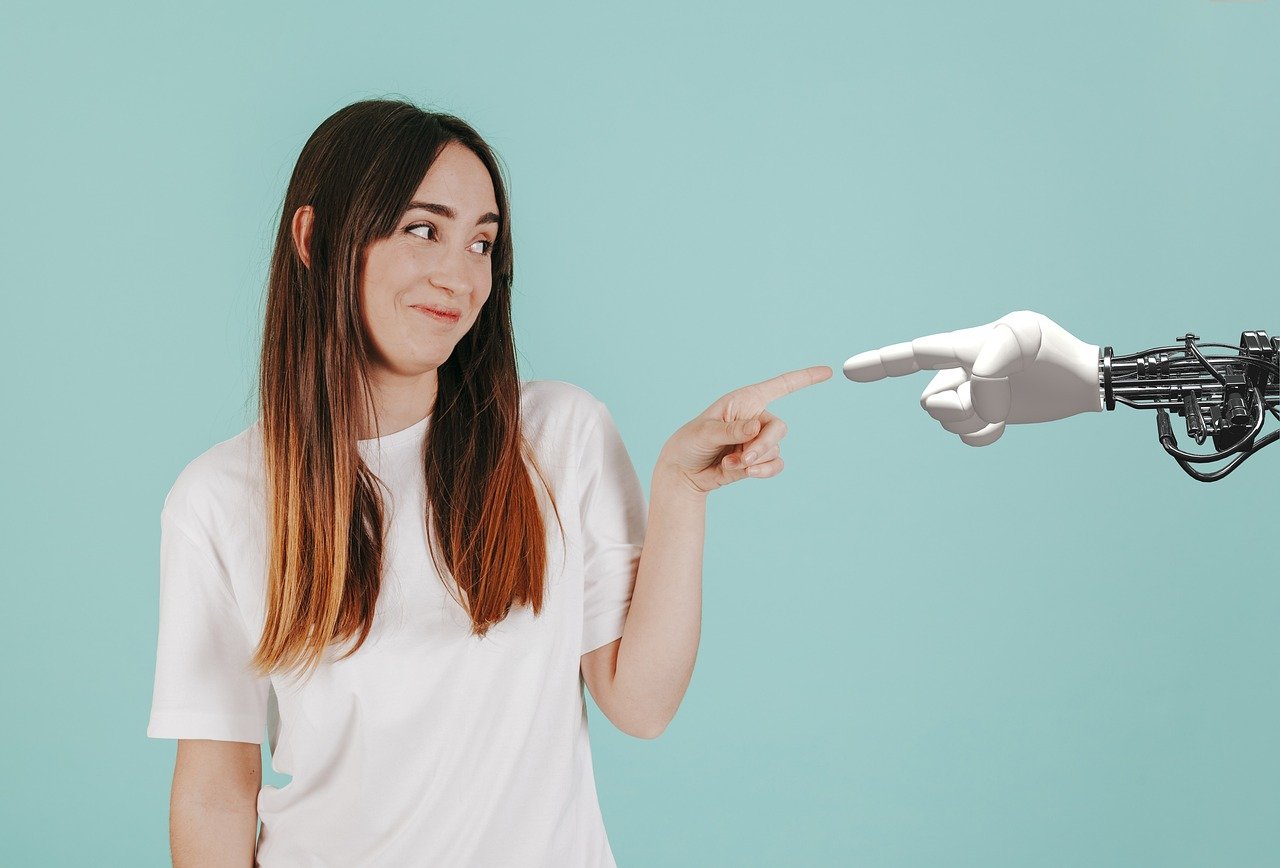Imagine a world where your digital marketing efforts are consistently hitting the mark, your website is performing at its absolute peak, and you’re spending less time tweaking and more time seeing tangible results. That’s the promise of AI optimization. By leveraging the power of artificial intelligence, businesses can transform their online presence, streamline operations, and achieve unprecedented levels of success. This blog post will delve into the core concepts of AI optimization, exploring its various applications and providing actionable insights to help you harness its potential.
Understanding AI Optimization
What is AI Optimization?
AI optimization refers to the process of using artificial intelligence algorithms to improve the performance of various systems, processes, and applications. In the context of digital marketing, it involves leveraging AI to enhance website performance, improve advertising campaigns, personalize user experiences, and automate various tasks. It’s about making data-driven decisions faster and more efficiently than ever before.
- Core Principle: Identifying patterns and insights within data to automate improvements and maximize desired outcomes.
- Key Technologies: Machine learning (ML), Natural Language Processing (NLP), Deep Learning.
- Example: Using AI to analyze website traffic data and automatically adjust website design for better conversion rates.
Benefits of AI Optimization
Implementing AI optimization can lead to a multitude of benefits for your business. These include:
- Increased Efficiency: Automate repetitive tasks and free up human resources for more strategic initiatives.
- Improved Performance: Enhance website speed, SEO rankings, and advertising ROI.
- Personalized Experiences: Deliver tailored content and recommendations to individual users, increasing engagement and conversion rates.
- Data-Driven Decisions: Make informed decisions based on real-time data analysis and predictive insights.
- Cost Reduction: Optimize resource allocation and reduce wasted spending on ineffective campaigns.
- Enhanced Customer Satisfaction: Provide seamless and relevant experiences, leading to greater customer loyalty.
- Scalability: AI systems can adapt and scale to handle increasing data volumes and complexity.
AI in Website Optimization
Optimizing Website Content with AI
AI can be used to significantly enhance your website content, making it more engaging and effective.
- Keyword Research: AI-powered tools can analyze search trends and identify relevant keywords with high search volume and low competition.
Example: Tools like Semrush or Ahrefs use AI to suggest related keywords and analyze their performance.
- Content Generation: AI can assist in generating content ideas, outlines, and even full articles.
Example: Using AI writing assistants like Jasper.ai to create blog posts, product descriptions, and social media updates.
- Content Optimization: AI can analyze existing content and provide recommendations for improvement, such as adding relevant keywords, improving readability, and optimizing headings.
Example: Tools like Surfer SEO utilize AI to analyze top-ranking content and suggest on-page optimization strategies.
- Personalization: AI can personalize content based on user behavior and preferences, increasing engagement and conversions.
Example: E-commerce websites using AI to recommend products based on past purchases and browsing history.
Enhancing Website Performance with AI
Website performance is critical for user experience and SEO. AI can play a vital role in optimizing various aspects of website performance:
- Image Optimization: AI can automatically compress images without sacrificing quality, reducing page load times.
Example: Using cloud-based image optimization services like Cloudinary or ImageEngine.
- Caching: AI can optimize caching strategies to serve content faster and reduce server load.
- Code Optimization: AI can identify and fix inefficient code, improving website speed and performance.
- Mobile Optimization: AI can ensure that your website is fully optimized for mobile devices, providing a seamless experience for mobile users.
- Load Balancing: AI can distribute traffic across multiple servers to prevent overload and ensure website availability.
A/B Testing and AI
A/B testing is a powerful method for optimizing website elements, and AI can accelerate and enhance this process.
- Automated A/B Testing: AI can automate the process of creating and running A/B tests, allowing you to test more variations and identify optimal solutions faster.
- Predictive Analysis: AI can predict which variations are most likely to succeed, allowing you to prioritize testing efforts and maximize results.
- Personalized A/B Testing: AI can personalize A/B tests based on user behavior, ensuring that the most relevant variations are tested for each individual user.
Example: Using Google Optimize with its AI-powered features to automate A/B testing and personalize experiments.
AI in SEO
Keyword Research and Analysis
AI-powered tools can revolutionize keyword research by providing more accurate and insightful data.
- Semantic Keyword Analysis: AI can understand the context and intent behind keywords, allowing you to target more relevant searches.
- Competitor Analysis: AI can analyze your competitors’ keyword strategies and identify opportunities for improvement.
- Long-Tail Keyword Discovery: AI can uncover long-tail keywords that are specific and less competitive, allowing you to attract highly targeted traffic.
Link Building
Link building is a crucial aspect of SEO, and AI can assist in identifying and pursuing valuable link opportunities.
- Backlink Analysis: AI can analyze your backlink profile and identify potentially harmful links that need to be disavowed.
- Link Prospecting: AI can identify websites that are relevant to your industry and likely to link to your content.
- Content Outreach: AI can personalize outreach emails to potential link partners, increasing the chances of securing backlinks.
Rank Tracking and Analysis
AI can monitor your website’s search engine rankings and provide insights into areas for improvement.
- Automated Rank Tracking: AI can automatically track your website’s rankings for specific keywords.
- SERP Analysis: AI can analyze search engine results pages (SERPs) to identify trends and opportunities.
- Ranking Prediction: AI can predict how your website’s rankings are likely to change in the future, allowing you to proactively address potential issues.
AI in Digital Advertising
Optimizing Ad Campaigns with AI
AI is transforming the landscape of digital advertising by automating campaign management and improving performance.
- Automated Bidding: AI can automatically adjust bids based on real-time data, maximizing ROI.
Example: Google Ads’ Smart Bidding strategies, which use machine learning to optimize bids for conversions.
- Ad Targeting: AI can target ads to the most relevant audiences based on demographics, interests, and behavior.
Example: Facebook Ads’ advanced targeting options, which allow you to target users based on a wide range of criteria.
- Ad Creative Optimization: AI can optimize ad copy, images, and videos to maximize click-through rates and conversions.
* Example: Using AI-powered tools to generate ad copy variations and automatically test different creatives.
- Fraud Detection: AI can detect and prevent ad fraud, ensuring that your advertising budget is being spent effectively.
Personalization in Advertising
AI enables you to create highly personalized advertising experiences for individual users.
- Dynamic Ad Content: AI can dynamically adjust ad content based on user behavior and preferences.
- Personalized Landing Pages: AI can direct users to personalized landing pages that are tailored to their specific needs and interests.
- Retargeting Optimization: AI can optimize retargeting campaigns to reach users who are most likely to convert.
Predictive Analytics in Advertising
AI can predict future advertising performance, allowing you to make more informed decisions about campaign strategy.
- Conversion Prediction: AI can predict which users are most likely to convert, allowing you to focus your advertising efforts on the highest-potential prospects.
- Budget Allocation: AI can optimize budget allocation across different campaigns and channels, maximizing overall ROI.
- Campaign Performance Forecasting: AI can forecast the future performance of your advertising campaigns, allowing you to adjust your strategy as needed.
Conclusion
AI optimization is no longer a futuristic concept; it’s a present-day necessity for businesses looking to thrive in the digital age. By leveraging the power of AI, you can enhance your website performance, improve your SEO rankings, optimize your advertising campaigns, and personalize your customer experiences. While adopting AI solutions may seem daunting at first, the potential benefits are undeniable. Start small, experiment with different AI tools and strategies, and gradually integrate AI into your core business operations. The future of digital marketing is powered by AI, and embracing this technology will be crucial for long-term success.



